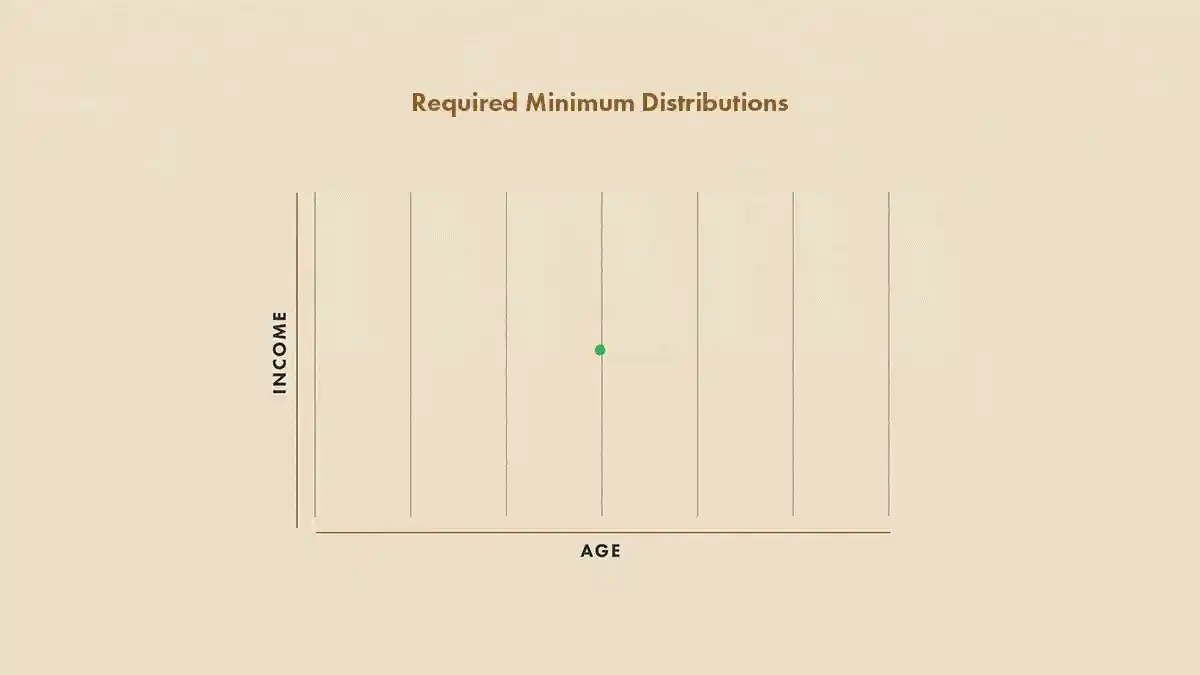How to reduce taxes in retirement by using Roth conversions

Few people realize that your greatest opportunity to securing a long, prosperous retirement is not your Social Security planning or even a medical expense. According to FINRA, taxes will be your single greatest expense in retirement. By taking no action, when you turn 72, you could be heading for a large tax bill that could have been avoided.
You likely have a 401(k) and possibly a Traditional IRA. With these accounts, the growth you’ve received is tax-deferred. A tax-deferred account means that you pay taxes at your ordinary income rate when you withdraw money from the account. At age 72, the government enforces Required Minimum Distributions (RMDs) from all tax-deferred accounts. These are forced withdrawals starting at 3.91% a year, and the percentage increases each year. This means that when you turn 72, you are required to withdraw from your tax-deferred accounts and receive taxable income. Also, if you don’t withdraw your RMD on time, the IRS will charge a 50% penalty on the amount you were supposed to distribute to yourself. These RMDs could push you into a higher tax bracket, resulting in you paying more taxes on every dollar that goes above the next tax bracket, even if you don’t need the money.

So what can you do to avoid paying so much in taxes?
One of the best tax savings strategies you can perform today to enhance your portfolio is a Roth Conversion. When you convert your tax-deferred accounts to a Roth IRA, you are paying your income taxes in a lower tax bracket today so you can receive tax-free income throughout your retirement. Imagine you are booking a hotel room and there is a significant discount if you pay for the room up front instead of when you leave. If you don’t intend to cancel, you likely want the discount. The same is true for converting to a Roth IRA.
But why should you do this now? Tax brackets are the lowest we’ve seen in modern history.

These rates are set to increase only marginally until 2025. And while it’s not guaranteed, these rates could increase in the next presidential administration. Converting some of your tax-deferred accounts to Roth IRAs in this low tax bracket season could save you thousands of dollars and give you freedom to choose how you want to use that money in retirement.
Introduced in 1997, a Roth IRA is a retirement savings vehicle that lets you save for your retirement by paying the income taxes up front. When you’re over 59 ½, you can make withdrawals from the account income tax-free. Roth IRA’s are also not subject to RMD’s.
What if you don’t want to convert into a Roth IRA?
While converting is the fastest way to accumulate a Roth IRA, you can also fund one like you would a Traditional IRA. However, there are some income limitations that could slow your account growth. In 2020, the maximum annual contribution rate is set at $7,000 if you are over age 50. Also, if you are already retired and don’t have any income to show, you aren’t allowed to contribute.
Reasons why you shouldn’t do this:
Though a Roth Conversion could have compelling results for many, it is not for everyone. Here are a couple of scenarios to consider
- If you are in a high-income tax bracket and convert a large sum, it could be a bad idea. For example, if you earn $150,000 a year and are converting $100,000, it would push you up to a higher tax bracket. You could consider doing a multi-year conversion strategy to maximize your current tax payments.
- If you need the money in 5 years or less. Roth IRA’s have a 5-year restriction on withdrawals, or you will receive a 10% penalty.
- If you don’t have the cash or income to pay the extra taxes. Paying taxes out of the Roth IRA conversion would slow the account growth significantly. Having cash or the current income means to pay for the taxes will help keep your account growing.
How can you get more information about Roth IRAs and conversion strategies?
There is much more to learn than what is written here. Reach out to us here if you have any outstanding questions.
Continue Learning
Gain more Insights and empower your financial future with our articles and other resources.




